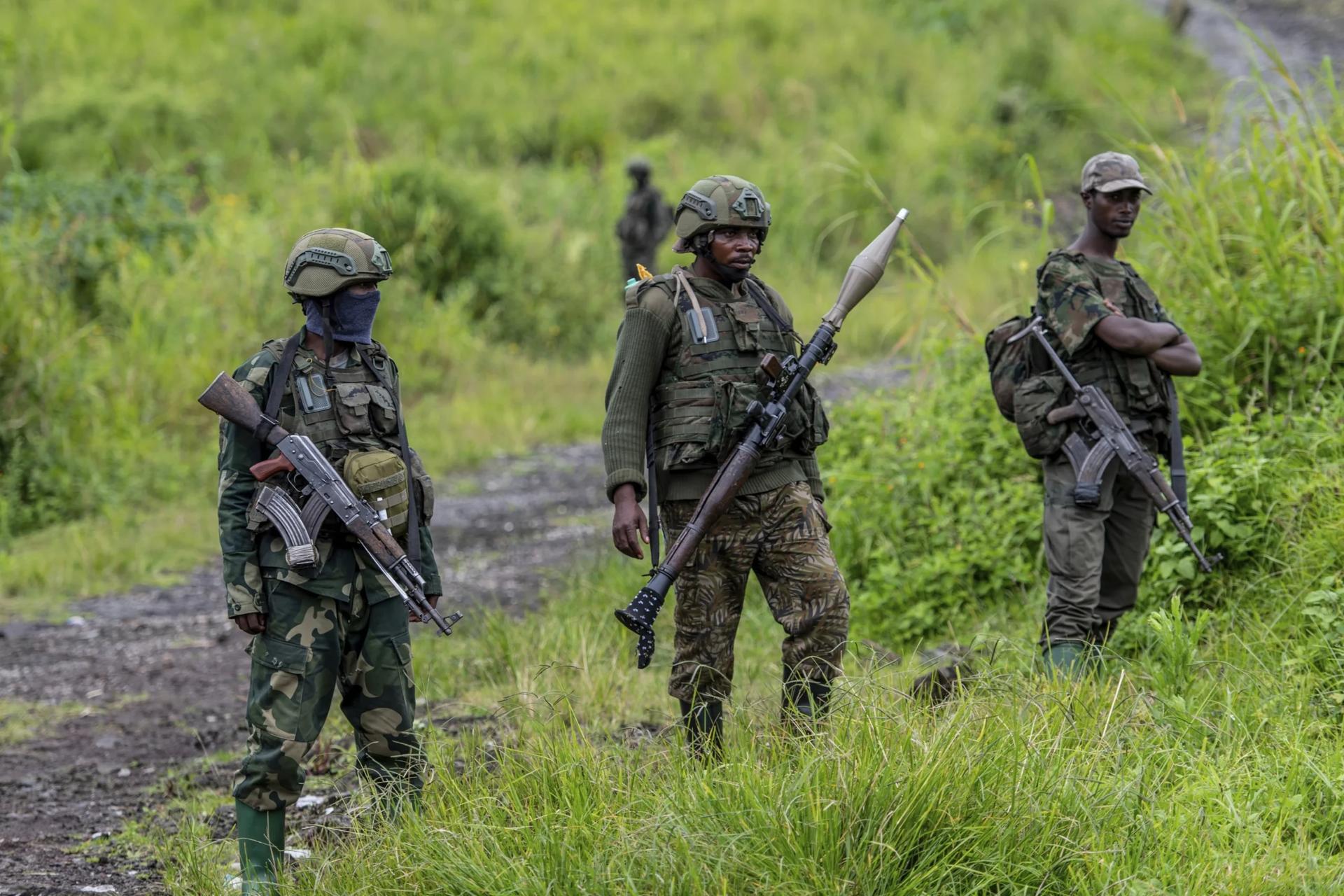YAOUNDÉ, Cameroon – In yet another sign of the worsening crisis in the East of the Democratic Republic of Congo, rebels of the Cooperative for the Development of Congo (CODECO) have attacked the church of St. John Capistran Parish of Bunia Catholic Diocese, in Ituri Province, inflicting what Father Chrysanthe Ngabu Lidja called “a devastating spiritual wound.”
In a July 22 press conference, the Coordinator of Caritas Bunia provided details about the July 21 attack.
“The church, the presbytery, and the Marian Shrine were desecrated. The tabernacle was forced open, the Eucharist scattered on the floor, and the Marian grotto vandalized by the rebels,” Father Chrysanthe Ngabu Lidja told journalists.
“Albs, chasubles, and all the liturgical items were thrown to the ground,” he said.
He blasted the Armed Forces of the Democratic Republic of the Congo (FRDC) and a contingent of the United Nations Organization Mission in Democratic Republic of the Congo (MONUSCO) for standing by as the rebels engaged in what Ngabu described as “grave violation of international humanitarian law.”
“This sacrilege was carried out in full view of the FRDC forces and constitutes a grave violation of both Congolese law and international humanitarian standards. We have not yet counted the psychological toll on the Priests and the surrounding population, but the spiritual damage is enormous,” the priest said.
“This attack is also a violation of the Framework Agreement between the Holy See and the DRC, which protects the Church’s spiritual and social mission in the country,” he added
He said it was painful that the attack happened in the full gaze of the military whose duty is to protect civilians, and explained that it could be the result of an unholy alliance between the Congolese Army and the CODECO militia group.
The FRDC’s spokesperson on July 19 said the military had gone into an alliance with the militia group – a move the Church leader completely disapproves of, especially as CODECO has been known for gross human rights violations.
Ngabu said the alliance as “unnatural and counterproductive,” and expressed concerns that it could rather worsen the already fragile security situation in the country.
“No government should ally itself with a militia known for atrocities,” he noted.
The latest attack demonstrates just how fragile the situation remains.
Gilbert Dhego, the Director of the Justice and Peace Commission in the DRC’s Catholic Diocese of Goma told Crux the situation “remains extremely worrying and volatile, despite the efforts being made to re-establish the authority of the state.”
The region is still facing persistent instability, fuelled by the proliferation of armed groups, and the AFC-M23 rebel movement continues to extend its hold over several strategic areas of North Kivu.
“In many areas of North and South Kivu, communities are living in near-permanent insecurity. Forced recruitment of young boys into the ranks of armed groups is regularly reported. Lifeless bodies are frequently found on the outskirts of towns, bearing witness to structural violence that is often beyond the control of the official security forces,” Dhego told Crux.
“In addition, links between urban centres and rural areas are increasingly compromised, making it difficult for goods and people to move around. This situation has a direct impact on supplies to local markets, leading to food shortages in several towns and worsening the precarious situation of the population,” he said.
Ngabu, the Caritas Coordinator, appealed to all factions, including self-defense groups, to end violence and engage in peaceful dialogue.
“Stop the killings. Stop sowing desolation. You are brothers,” the priest urged.
Ngabu issued a stark warning against the rising tide of stigmatization directed at the Catholic Church and its priests in Bunia Diocese, who are falsely maligned as supporters of rebel groups.
He attributed this dangerous trend to incendiary propaganda disseminated by state-aligned media.
A peace deal with little prospects for peace
Meanwhile, a peace deal has been signed between the Congolese government and the M23 rebels. The deal signed in Doha, Qatar requires the parties to refrain from further attacks and to stop conquering new territory.
Dhego says the deal has generated differing reactions. The government and its supporters, particularly in Kinshasa, hail the agreement as a major diplomatic victory paving the way for peace, but communities living under M23 control or in the conflict-ridden east feel profound confusion and anxiety.
“They are uncertain if the agreement will address their needs or is merely a government ploy, all while fearing that violations by either side could spark a catastrophic new cycle of violence,” he told Crux.
The DRC has been engulfed in violence for over three decades now, with more than 20 armed groups fighting for the control of territory and minerals.













